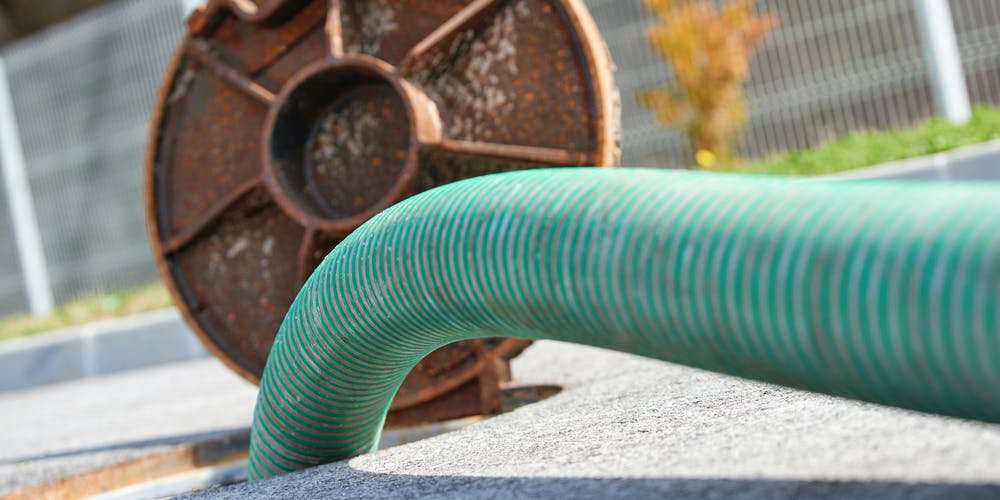You can tell a lot about a person from their shoes, but you can tell even more about them from their poos — including how wealthy they are, scientists say. It may sound gross, but a new analysis from Australia has revealed how the varying income levels in different communities are linked to different food and drug consumption habits.
This fact on its own may not be that remarkable, but scientists showed that these habits show up as noticeable differences in wastewater.
In a study published on Monday in the journal Proceedings of the National Academy of Sciences, a team of scientists shows that socioeconomic advantage can be mapped by wastewater. Specifically, the wastewater from wealthier communities where people had higher educational achievement showed higher levels of vitamins, citrus, and fiber, while the waste from poorer communities where people were generally less educated showed higher levels of prescription pain relievers and antidepressant medications.
Wastewater can hold many clues about a community's consumption habits.
“Although [wastewater-based epidemiology] has primarily been used for measuring drug consumption, our results demonstrate that it can be used to identify sociodemographic patterns or disparities which associate with consumption of specific chemicals or food components,” writes the team, led by Phil Choi, a Ph.D. student at the Queensland Alliance for Environmental Health Sciences in Australia.
By examining samples from 22 water treatment plants in six Australian states over seven consecutive days in 2016, then comparing the results to 40 different socioeconomic factors from Australia’s national census (factors like rent price and education level), Choi’s team drew a handful of correlations that can be observed in the urine and feces of residents.
One of the strongest correlations Choi’s team identified was between socioeconomic status and prescription drug use. In the wastewater treatment plants associated with Australians of lower socioeconomic status, there were higher levels of the following prescription drugs:
tramadol, an atypical opioid pain reliever
And while the team notes that this finding is consistent with higher reported pharmaceutical use among people of lower socioeconomic status, it helps validate the study method of examining wastewater to understand trends in a community.
Among the factors identified in the study, dietary fiber and citrus fruit consumption were closely correlated with socioeconomic status. Samples from wastewater plants that treated the waste from wealthier areas showed higher levels of proline betaine, a component of citrus flesh, as well as enterodiol and enterolactone, which are components found in the waste of people who eat plants.
Together, these three molecules were found in significantly higher levels in the wastewater from wealthier communities, indicating that people in those communities were eating more fresh fruits and vegetables.
In areas with higher rent — over $470 a week — wastewater contained evidence of significantly higher levels of vitamins B3, E, and B6. To identify these vitamins, the researchers looked for their metabolites in wastewater, the substances produced when people break the vitamins down in their bodies.
Conversely, they observed lower levels of these vitamins in areas where people of lower socioeconomic status live — unemployed people and disabled people under 70, specifically.
Wastewater-based epidemiology has become a growing field in recent years, mostly focusing on illicit drug use. It’s a controversial research method, since critics suggest it can be a way to gather data on people without their consent — some have gone so far as to call it a new form of mass surveillance.
Regardless of privacy concerns, though, it has turned up some interesting results.
For instance, in June a study used sewage data to show that Washington’s legal marijuana market had taken a bite out of the black market.
The future will tell how public opinion comes down on these wastewater epidemiology studies, and while this latest one basically just confirms previous research on wealth — richer people eat better and have fewer health problems — it also suggests that this type of work can reveal an awful lot about a community, all without needing anyone’s consent.

zen_veteran on October 9th, 2019 at 13:27 UTC »
Makes sense to me. Walk into a Whole Foods and take a look around, then walk into a Walmart and do the same; there are vastly different people at each location.
AutophobicIntrovert on October 9th, 2019 at 12:20 UTC »
So does a lack of money make you depressed or do depressed people tend to end up paid less or is there something else?
ToxDocUSA on October 9th, 2019 at 12:17 UTC »
Wasn't there an article recently that wealthier communities received more antidepressant prescriptions? Might have been (probably was) US instead of Australia.